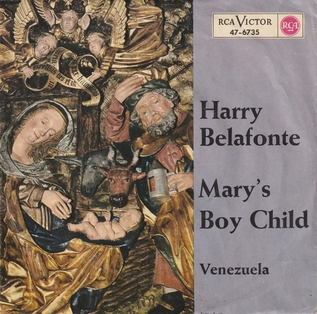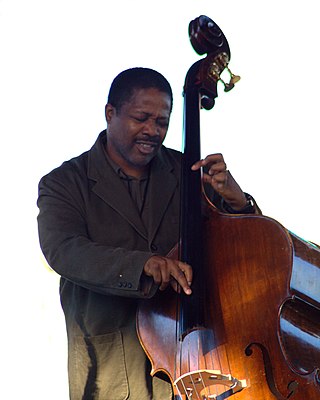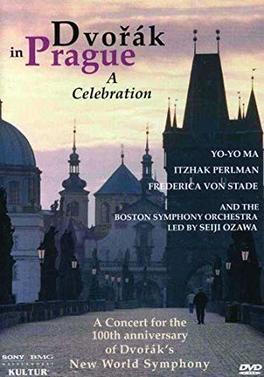
The English Chamber Orchestra (ECO) is a British chamber orchestra based in London. The full orchestra regularly plays concerts at Cadogan Hall, and their ensemble performs at Wigmore Hall. With a limited performance size, the orchestra specializes in 18th-century music and was created to perform Baroque Music. The orchestra regularly tours in the UK and internationally, and holds the distinction of having the most extensive discography of any chamber orchestra and being the most well-traveled orchestra in the world; no other orchestra has played concerts (as of 2013, according to its own publicity) in as many countries as the English Chamber Orchestra.
The 28th Annual Grammy Awards were held on February 25, 1986, at Shrine Auditorium, Los Angeles. They recognized accomplishments by musicians from the previous year, 1985. The night's big winner was USA for Africa's "We Are the World", which won four awards, including Song of the Year which went to Michael Jackson and Lionel Richie. It marked the first time in their respective careers that they received the Song of the Year Award. For Richie, it was his sixth attempt in eight years. The other three awards for the latter single were given to the song's producer, Quincy Jones.

Wynton Learson Marsalis is an American trumpeter, composer, and music instructor, who is currently the artistic director of Jazz at Lincoln Center. He has been active in promoting classical and jazz music, often to young audiences. Marsalis has won nine Grammy Awards, and his oratorio Blood on the Fields was the first jazz composition to win the Pulitzer Prize for Music. Marsalis is the only musician to have won a Grammy Award in both jazz and classical categories in the same year.
The 26th Annual Grammy Awards were held on February 28, 1984, at Shrine Auditorium, Los Angeles, and were broadcast live on American television. They recognized accomplishments by musicians from the year 1983. Michael Jackson, who had been recovering from scalp burns sustained due to an accident that occurred during the filming of a Pepsi commercial, won a record eight awards during the show. It is notable for garnering the largest Grammy Award television audience ever with 51.67 million viewers.
The 30th Annual Grammy Awards were held March 2, 1988, at Radio City Music Hall, New York City. They recognized accomplishments by musicians from the previous year.

Kathleen Deanna Battle is an American operatic soprano known for her distinctive vocal range and tone. Born in Portsmouth, Ohio, Battle initially became known for her work within the concert repertoire through performances with major orchestras during the early and mid-1970s. She made her opera debut in 1975. Battle expanded her repertoire into lyric soprano and coloratura soprano roles during the 1980s and early 1990s, until her eventual dismissal from the Metropolitan Opera in 1994. She later has focused on recording and the concert stage. After a 22-year absence from the Met, Battle performed a concert of spirituals at the Metropolitan Opera House in November 2016, and again in May 2024.

Marthaniel "Marcus" Roberts is an American jazz pianist, composer, arranger, bandleader, and teacher.

The American Boychoir School was a boarding/day middle school located in Princeton, New Jersey, and the home of the American Boychoir. The school originated as the Columbus Boychoir in Columbus, Ohio. In 1950, the school relocated after receiving property in Princeton, New Jersey from the Lambert estate. The relocated school was renamed the American Boychoir School. It remained in this location until the sale of Albemarle in 2012. The school served boys in grades 4–8, many of whom came from across the United States and from many countries. It was one of only two boychoir boarding schools in the United States, the other being Saint Thomas Choir School in New York City. The school provided opportunity to boys from across the world to experience the rich world of music. The Boychoir toured across the contiguous United States, through Canada, as well as internationally, allowing students to gain diverse cultural perspective while performing at the professional level. The American Boychoir performed with numerous orchestras, frequently including the New York Philharmonic as well as the Philadelphia Symphony Orchestra.

"Mary's Boy Child", also known as "Mary's Little Boy Child", is a 1956 Christmas song written by Jester Hairston. It is widely performed as a Christmas carol.
The Jacksonville Symphony is an orchestra based in Jacksonville, Florida.

Rodney Whitaker is an American jazz double bass player and educator.
William David "Bill" Brohn was an American arranger and orchestrator, best known for his scores of musicals such as Miss Saigon, Ragtime and Wicked. He won the Tony Award for Best Orchestrations for Ragtime and won the Drama Desk Award for Outstanding Orchestrations three times.

Christmas with Flicka is a 58-minute television concert film starring Frederica von Stade, Melba Moore, Rex Smith and Julius Rudel. It is an American-Austrian co-production, shot on location in Austria in 1987.

Shéhérazade is a 40-minute studio album of art songs by Maurice Ravel performed by Frederica von Stade. In the Chansons madécasses, she is accompanied by the flautist Doriot Anthony Dwyer, the cellist Jules Eskin and the pianist Martin Katz. In two of the Cinq mélodies populaires grecques, the Deux mélodies hébraïques and Shéhérazade itself, she is accompanied by the Boston Symphony Orchestra under the direction of Seiji Ozawa. The album was released in 1981.

Frederica von Stade: Chants d'Auvergne, Vol. 1 is a 51-minute studio album presenting seventeen of the thirty traditional Auvergnat songs collected and arranged by Joseph Canteloube, performed by von Stade and the Royal Philharmonic Orchestra under the direction of Antonio de Almeida. It was released in 1982. The same artists recorded the rest of Canteloube's Auvergne songs and three mélodies of his own composition for a sequel album, Frederica von Stade: Chants d'Auvergne, Vol. 2, released in 1986.

Frederica von Stade: Chants d'Auvergne, Vol. 2 & Triptyque is a 60-minute studio album containing thirteen of the thirty traditional Auvergnat songs collected and arranged by Joseph Canteloube, together with a song cycle of his own composition, performed by von Stade and the Royal Philharmonic Orchestra under the direction of Antonio de Almeida. It was released in 1986. The same artists recorded Canteloube's seventeen other Auvergnat songs for the album's predecessor, Frederica von Stade: Chants d'Auvergne, Vol. 1, released in 1982.

A Midsummer Night's Dream is a 51-minute studio album containing the overture and most of the incidental music that Felix Mendelssohn wrote to accompany William Shakespeare's play of the same name. It is performed by Judith Blegen, Frederica von Stade, the Women's Voices of the Mendelssohn Club of Philadelphia and the Philadelphia Orchestra under the direction of Eugene Ormandy. It was released in 1977.

A Midsummer Night's Dream is a 55-minute studio album containing the overture and almost all of the incidental music that Felix Mendelssohn wrote to accompany William Shakespeare's play of the same name. It is performed by Kathleen Battle, Frederica von Stade, the Tanglewood Festival Chorus and the Boston Symphony Orchestra under the direction of Seiji Ozawa, with interlinking passages of verse spoken by Judi Dench. It was released in 1994.

New Year's Eve Concert 1992: Richard Strauss Gala was a 76-minute televised event presented in Berlin's Philharmonie on 31 December 1992, in which four pieces of music by Richard Strauss were performed by the pianist Martha Argerich and the singers Kathleen Battle, Renée Fleming, Andreas Schmidt and Frederica von Stade with the Berlin Philharmonic Orchestra under the direction of Claudio Abbado. It was jointly produced by Columbia Artists Management and Germany's Zweites Deutsches Fernsehen in association with France's La Sept, Japan's NHK and the United States' PBS, and was released on CD and Laserdisc by Sony Classical Records and on DVD by Kultur Video.

Dvořák in Prague: A Celebration was an 89-minute televised concert presented in Prague's Smetana Hall on 16 December 1993, in which thirteen pieces of music by Antonin Dvořák were performed by the pianist Rudolf Firkušný, the cellist Yo-Yo Ma, the violinist Itzhak Perlman, the mezzo-soprano Frederica von Stade, the Prague Philharmonic Chorus and the Boston Symphony Orchestra under the direction of Seiji Ozawa. It was produced by Sony Classical Film and Video, Czech Television and Germany's Zweites Deutsches Fernsehen in association with Pragokoncert, the Netherlands' Algemene Vereniging Radio Omroep and the United States' Public Service Broadcasting and MJI Broadcasting, and was released on Laserdisc, VHS video cassette, CD and audio cassette by Sony Classical Records and on DVD by Kultur Video.















